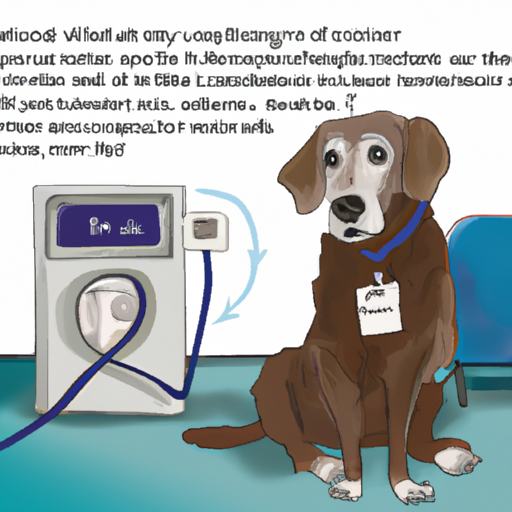As a loving and responsible dog owner, it’s natural to feel concerned and even heartbroken when your furry friend is diagnosed with kidney failure. You may have numerous questions, but one that stands out is: how long can dogs live with kidney failure? It’s a painful question to ask, but understanding the answer can help you make informed decisions about your dog’s health and wellbeing.
- Understanding Canine Kidney Failure
- Factors Affecting a Dog’s Lifespan with Kidney Disease
- Symptoms of Kidney Failure in Dogs
- Treatment Options for Dogs with Kidney Failure
- FAQs
Understanding Canine Kidney Failure
Your dog’s kidneys play a vital role in their overall health. They help filter out toxins from the blood, maintain hydration, and balance essential nutrients. Unfortunately, these critical organs can sometimes fail, leading to a condition known as kidney failure or renal failure. This disease can be either acute (sudden) or chronic (long-term).
According to the American Kennel Club (AKC), chronic kidney disease is common in older dogs and can be managed but not cured. On the other hand, acute kidney disease can affect dogs of any age and is typically caused by poisoning or sudden trauma.
The prognosis for dogs with kidney failure varies significantly and depends on various factors, which we will discuss in the next section.
Factors Affecting a Dog’s Lifespan with Kidney Disease
The life expectancy of a dog with kidney disease can range from months to years, depending on multiple factors:
-
Type of Kidney Disease: As mentioned earlier, acute kidney disease is often reversible if treated early, while chronic kidney disease is incurable but manageable.
-
Stage of Kidney Disease: Kidney disease progresses in stages, with later stages being more severe. Early detection and treatment can significantly increase a dog’s lifespan.
-
Dog’s Age and Overall Health: Younger dogs with good overall health may have a better prognosis than older dogs or those with additional health issues.
-
Quality of Care: Proper veterinary care, including a healthy diet and medication, can extend a dog’s life with kidney disease.
Symptoms of Kidney Failure in Dogs
As a caregiver, it’s crucial to be vigilant about any changes in your dog’s behavior or health. Recognizing the signs of kidney disease early can make a significant difference in your dog’s prognosis. Some common symptoms include:
- Increased thirst and urination
- Loss of appetite
- Weight loss
- Lethargy
- Bad breath
- Vomiting or diarrhea
If you observe any of these symptoms, it’s essential to take your dog to the vet for a check-up. The earlier the diagnosis, the better the chances of managing the disease effectively. For more information on how to spot the signs of kidney disease in your dog, you might find this article on OneTopDog useful.
Treatment Options for Dogs with Kidney Failure
Although kidney disease is a serious diagnosis, there are several treatment options available to manage the condition and improve your dog’s quality of life.
-
Dietary Changes: Feeding your dog a balanced, kidney-friendly diet can help manage the disease by reducing the workload on the kidneys. There are several commercial kidney diets available, or your vet may recommend a homemade diet.
-
Fluid Therapy: Dehydration is a common problem in dogs with kidney disease. Your vet may recommend subcutaneous fluid therapy to help keep your dog hydrated and flush out toxins.
-
Medication: Depending on your dog’s symptoms and disease stage, your vet may prescribe medications to manage symptoms and slow disease progression.
-
Regular Check-ups: Frequent veterinary check-ups are crucial for monitoring your dog’s health and adjusting treatment as necessary.
Remember, while it’s challenging to see your dog suffer, proper care and management can help them live a comfortable life. For more tips on caring for a dog with kidney disease, check out this helpful guide on OneTopDog.
FAQs
Q: How long can dogs live with kidney failure?
A: The lifespan of a dog with kidney failure can range from months to years, depending on the type and stage of the disease, the dog’s age and overall health, and the quality of care.
Q: Can a dog recover from kidney failure?
A: While acute kidney disease may be reversible with prompt treatment, chronic kidney disease is incurable but can be managed with proper care.
Q: How can I help my dog with kidney failure?
A: Providing a kidney-friendly diet, ensuring your dog stays hydrated, administering prescribed medications, and scheduling regular vet check-ups can help manage your dog’s kidney disease and improve their quality of life.
Conclusion
Dealing with a diagnosis of kidney failure in your dog can be overwhelming. However, understanding the disease and the factors that influence a dog’s lifespan with kidney failure can help you provide the best possible care for your four-legged friend. Just remember, every dog is unique, and with the right care and attention, they can lead a comfortable and, most importantly, happy life. For more information on canine health and wellbeing, feel free to explore other resources on OneTopDog.



